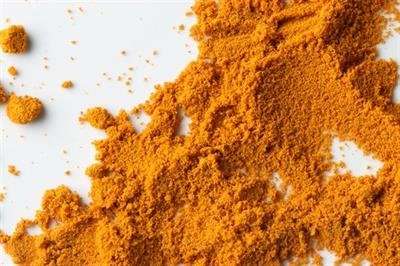New evidence suggests a role for curcumin and related compounds in the treatment of cancer and Alzheimer's disease

It has long been believed that curcumin, a component of the golden spice (turmeric), has medicinal properties, but problems with its bioavailability and a lack of understanding of how it works have complicated its use.
In a new paper published today in Disease, Models and Mechanisms, Professor Robin SB Williams from the School of Biological Sciences at Royal Holloway, University of London, has identified a way that curcumin may have therapeutic effects and has identified related compounds with the same effect that may provide better bioavailability.
Natural remedies
Professor Williams, said: "Natural products obtained from plants have been used for thousands of years as medicines, but we often do not understand how they work. What we wanted to do was to investigate curcumin to try to understand how it modifies cell functions."
The researchers used a species of amoeba (Dictyostelium discoideum) to investigate how curcumin and related compounds effect the amoeba. They then identified genes that controlled these effects. Two genes were shown to be necessary for the effect of curcumin, and these genes have been associated with both Alzheimer's disease and cancer. The researchers also identified more soluble compounds related to curcumin that work in the same way.
Animal-free experiment
These novel experiments could pave the way for a better understanding of curcumin and its applications, including its use in treatment of disease. "One of the major issues with curcumin is it has low bioavailability," explains Dr. Marco Cocorocchio, the lead author of the study. "Bioavailability is the proportion of curcumin that your body can actually use once you've ingested it. Because this is relatively low, it's been hard to know what effects curcumin could have. These experiments have shown that there may be a positive effect but we need to work on how we could use it."
Professor Williams, who is a world-leader in biological testing without using animals, said: "Scientific research in the areas of medicine and toxicology have traditionally relied upon using animals as a model to understand what happens in the human body, but concern over the use of animals in research has triggered the investigation of new approaches. We have developed one approach—utilising the social amoeba Dictyostelium—so no animal testing was needed."
The outcome of the project will be a new focus on the use of curcumin, and related compounds that are more bioavailable, as potential treatments for cancer and Alzheimer's disease.
More information: Marco Cocorocchio et al. Curcumin and derivatives function through protein phosphatase 2A and presenilin orthologues in Dictyostelium discoideum, Disease Models & Mechanisms (2017). DOI: 10.1242/dmm.032375





















